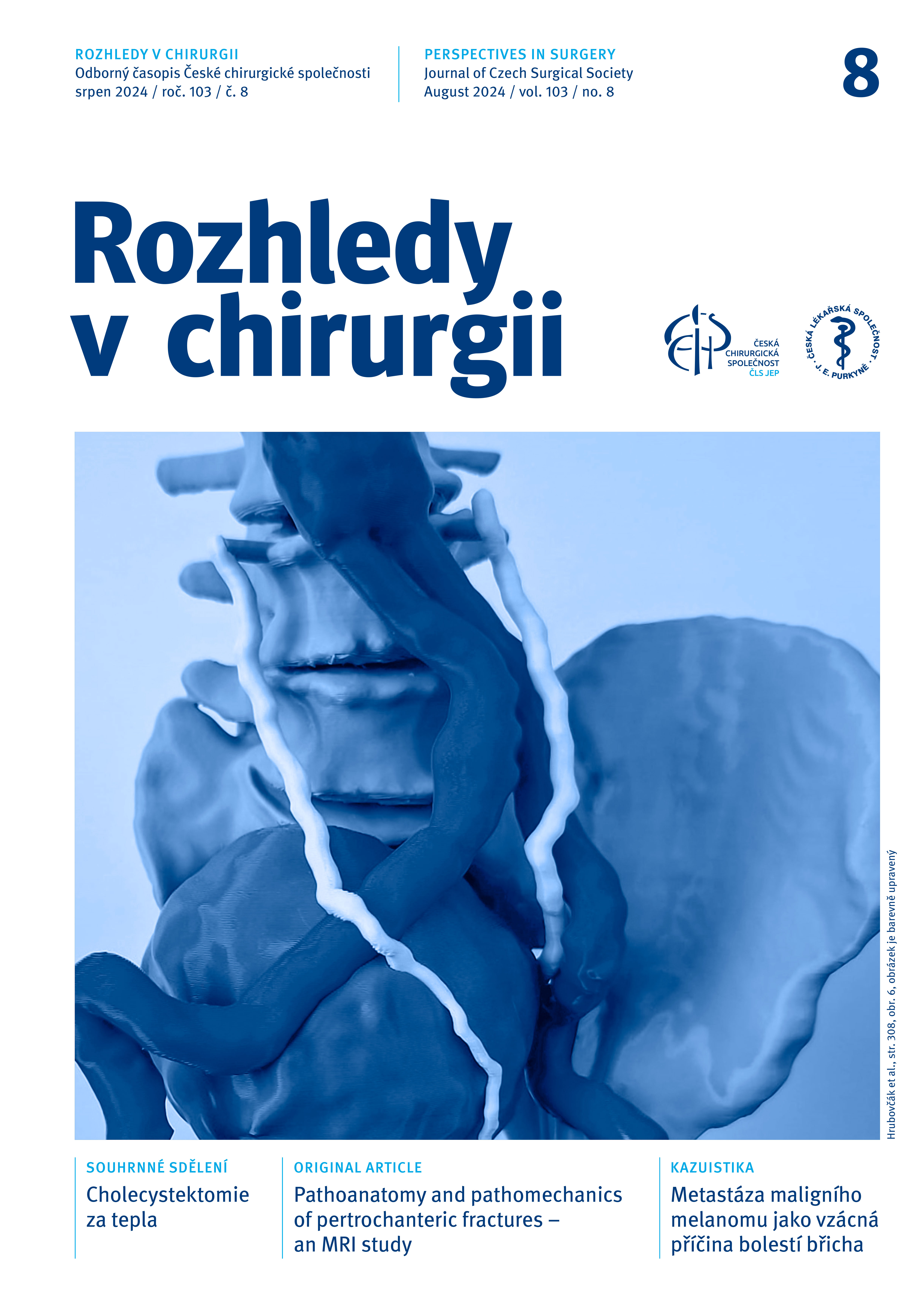Abstract
Background and study aims: Magnetic resonance imaging (MRI) has been used for more than 20 years in the region of the proximal femur to diagnose occult, or incomplete, fractures of the femoral neck and the trochanteric segment. MRI has also potential to contribute to the understanding of the pathogenesis and pathoanatomy of trochanteric fractures.
Methods: The group including 13 patients was examined by MRI for a suspected, or incomplete, fracture of the trochanteric segment within 24 hours post-injury. In all cases, this was the first injury to the hip joint, with the other hip joint remaining intact.
Results: The coronal scans showed a marked fracture line which, in the region of the intertrochanteric line, extended from the base of the greater trochanter (GT) medially and distally and involved the medial cortex. This inclination, however, was gradually changing posteriorwards and close before the posterior cortex. The fracture line was passing vertically along the lateral trochanteric wall as far as the level of the lesser trochanter (LT). Then the fracture line changed its course and ran horizontally to the cortex of the LT. Sagittal scans showed clearly the primary fracture line originating in the greater trochanter, extending medially and starting to separate the posterior cortex.
Conclusion: Analysis of MRI findings has documented that the primary fracture line in pertrochanteric fractures originates in the GT and extends distally, medially and anteriorly towards the anterior cortex, the intertrochanteric line and the LT. Thus, the GT presents a rather vulnerable site and is always broken into more fragments than shown by a radiograph.
doi: 10.48095/ccrvch2024299


